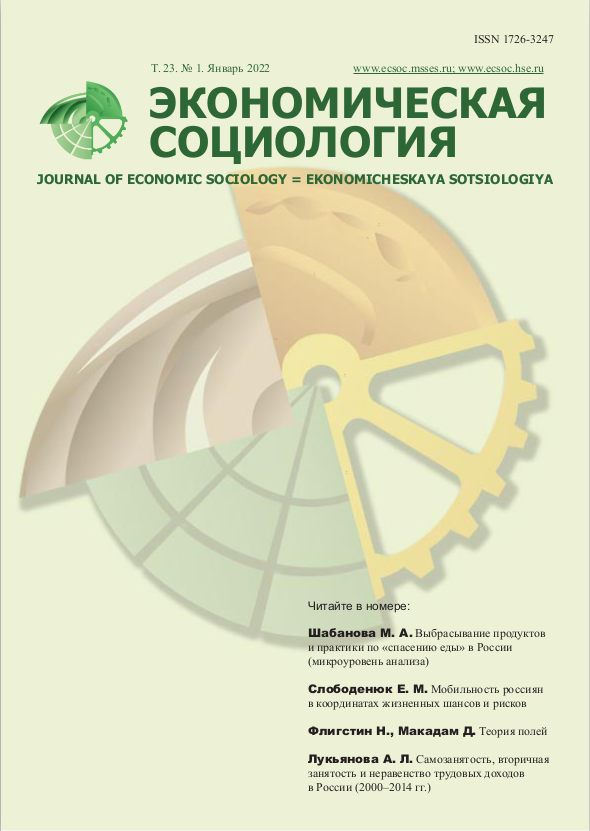Self-Employment, Secondary Jobholding, and Labor Income Inequality
Abstract
Using data from the Russian Longitudinal Monitoring Survey from 2000 to 2014, this study analyzes the evolution of various sources of labor income: salaried employment in a primary job, self-employment in a primary job, secondary employment, and irregular earnings. The composition of income sources reflects the strategies of adaptation to economic shocks, institutional changes, and technological innovations. The paper contributes to the debates about the precarization of employment and, more broadly, to the development of sociological views about social class structure. The importance of salaried employment in a single job markedly increased between 2000 and 2014, both as the share of the workforce and as the fraction of total labor incomes. Simultaneously, the prevalence of secondary job holding and irregular work activities declined, which indicates the stabilization of the social structure. The results show that additional labor incomes and total labor income are distributed less evenly than earnings from a primary job. The observed changes in the structure of employment are associated with a 7–8% reduction in labor income inequality, which exceeds the contribution of changes in the education structure or population aging. Multiple jobholding retains its role as a source of social differentiation, despite a significant reduction in its incidence.













